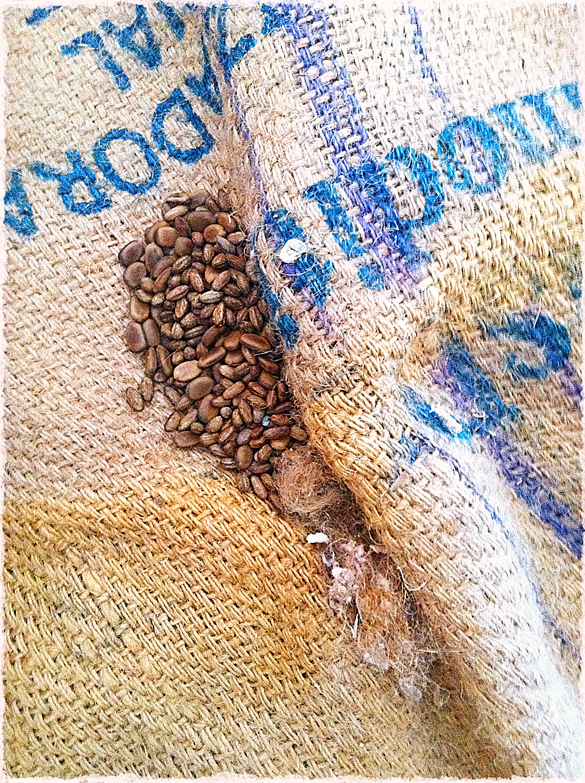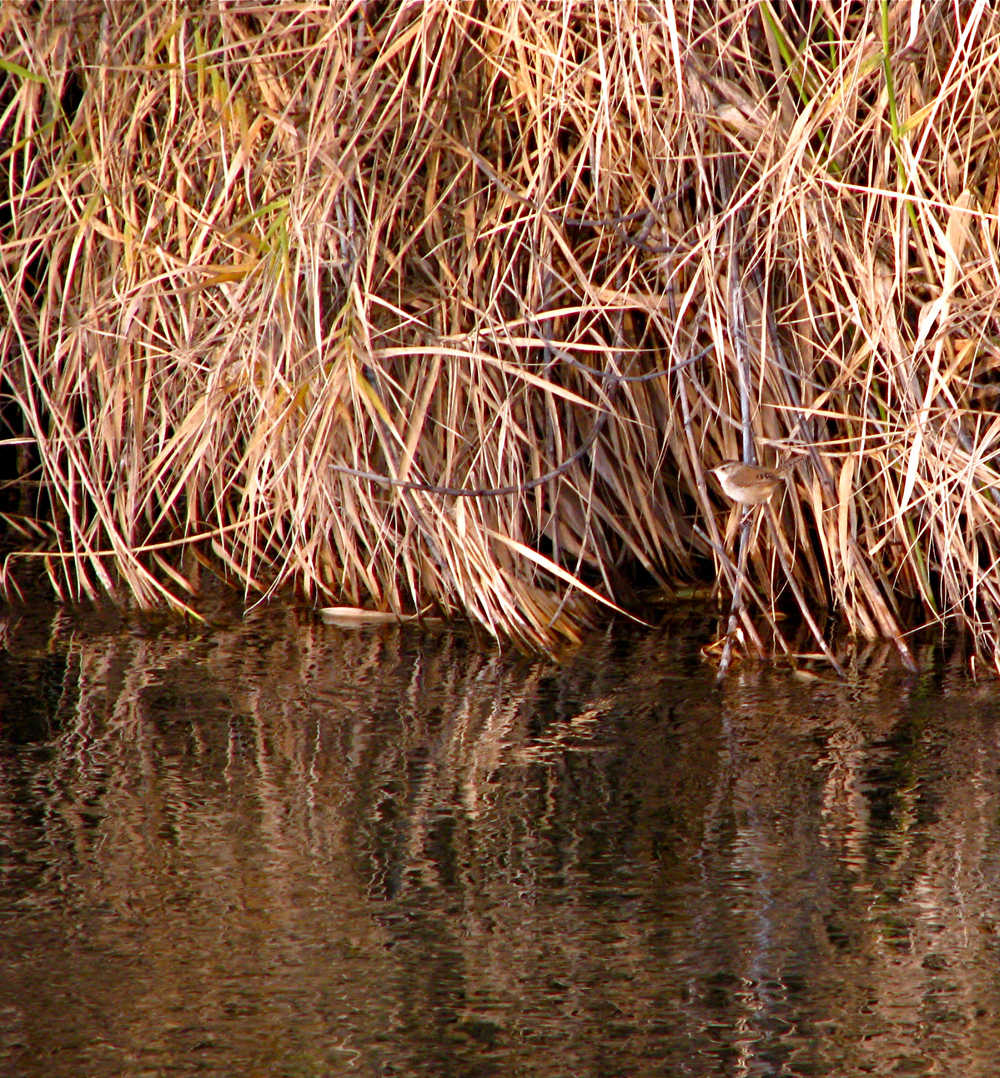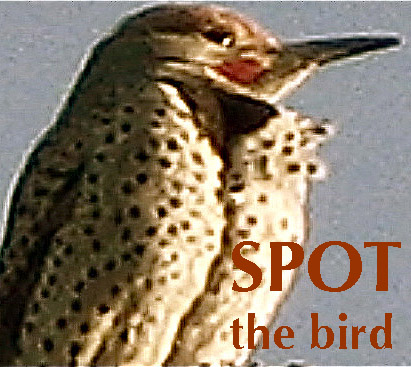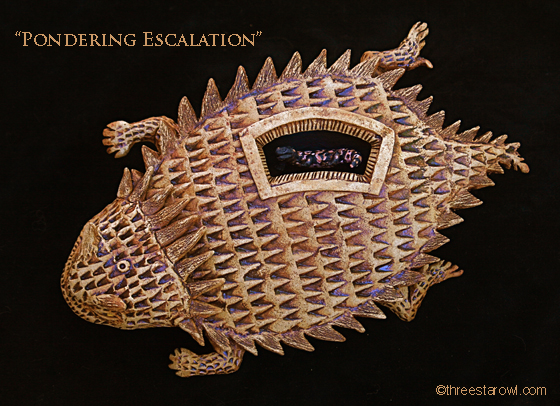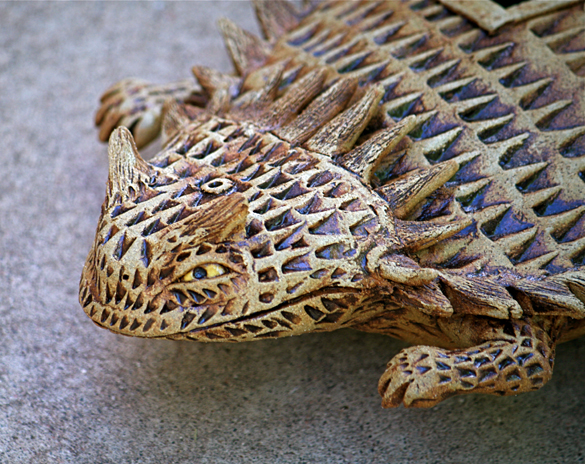The Others Who Live in Our House
We have a loose house.
By that I mean that nothing — windows, roof, doors, plumbing — closes tight, seals off, keeps in, or shuts out. Anything. Everything — cold draughts, hot breezes, swirling dust, muddy floodwater, joint-leggedies, fur bodies, helicopter rotor din — it all comes in, then usually goes out again, unless it decides it’s nice enough to stay, or the cats find it.
From many angles, this is not ideal. But it’s never boring. We call it “living close to nature” and try to learn to appreciate having wasps’ nests in the door jambs, rock squirrels in the attic, leaf-cutter bees in the keyholes, Huntsmen and Cellar spiders at the top of the walls, praying mantises on the houseplants, and termites in the kitchen door frame. OK, to be honest, we haven’t yet learned to appreciate termites in the kitchen, although we haven’t evicted their larval selves yet, either. You get used to inroads, after a while.
>> Palo verde seeds of two types (photo A.Shock)
We uncovered the latest inroad yesterday while searching for a bag of sawdust in the garage: someone’s carefully harvested, cleaned, and stored seed hoard. It featured two different kinds of seeds, Blue Palo Verde and Little-leaf Palo Verde, neatly cached with a little fuzzed fiber as a casually engineered plug to keep the treasure from flowing down the fold of a burlap bag. It was nice work: no husks, droppings, or other pollution in sight. But no owner, either. It was probably one of the Other Mice, family Heteromyidæ, a pocket mouse or kangaroo rat (neither is either a rat or a mouse), most likely the former, which we see around the yard. Caches like this are generally stored underground, and in addition to nourishing the gatherers, provide one of the main ways Palo Verde trees propagate: seeds in a rodent’s forgotten subterranean hoard will germinate, just add monsoon rains. But this trove was high and dry, and the seeds would have languished without benefitting the tree.
And maybe not the pocket mouse who stuffed it into our loose garage, either. But we’ll never know — the human need for not sharing living space with chewing organisms (except dogs, for some reason) kicked in and we scooped up the hoard and spirited it away — a full 1/3 of a cup of pretty little hard, brown seedlets, the smallest ones speckled like the beans they are. Their fate is to be determined. I read that you can bake bread with palo verde seeds: like most legumes, they’re very nutritious. After all the rodent’s hard work, it seems like someone should eat them.
Now, does anyone have a recipe for termites?

